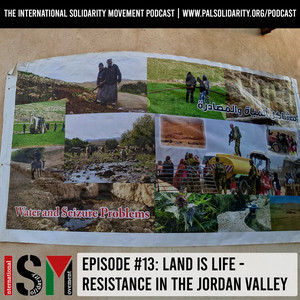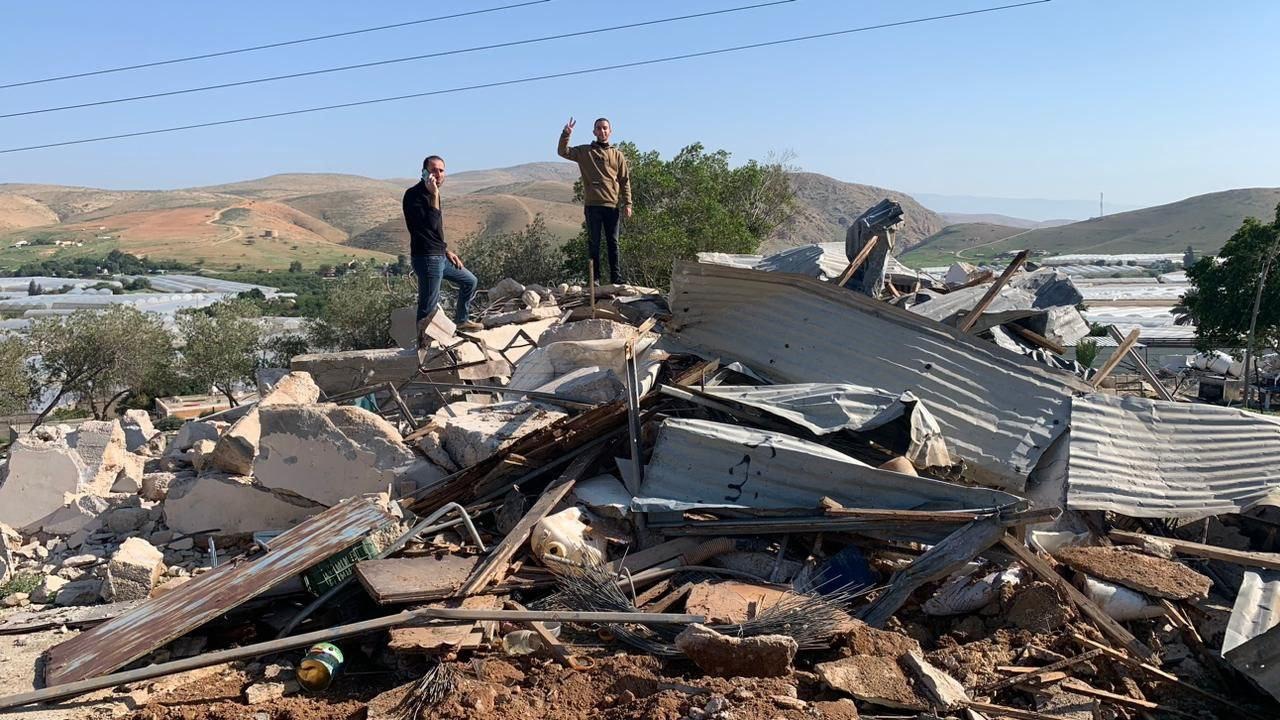Tag: Jordan Valley Solidarity
-
Israeli settlers, backed by army, attack family in Hammamat Al-Maleh
Saturday 27 December — Israeli settlers stormed Hammamat al-Maleh, in the Northern Jordan Valley. They forced their way into Burhan Ali Daraghmeh’s home, beating his 12-year-old daughter and two of his grandchildren. The settlers called for reinforcement, and as more settlers showed up, they started vandalising multiple homes and assaulting the women of the community.…
-
ISM Podcast episode 13 – Jordan Valley Solidarity
This episode of the International Solidarity Movement Podcast was recorded last year, long before the current Israeli genocidal attack against Gaza began. Since te interview took place the situation in the Jordan Valley has got much worse. Jordan Valley Solidarity (JVS) is still working to support the people of the Jordan Valley to stay on…
-
Human rights abuses in the Jordan Valley
29 December 2023 | International Solidarity Movement | Jordan Valley The following article is a snapshot of how life is under occupation and brutal settler colonialism for the Palestinian communities in the Jordan Valley. These incidents are just some that took place on one day (Friday 29th December). Israeli Occupation Force (IOF) soldiers, along with…



